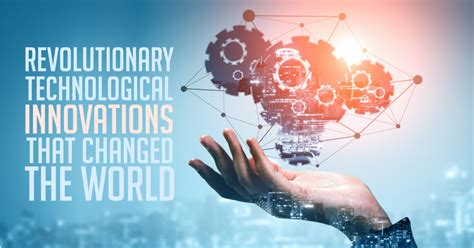In today's fast-paced and increasingly digital world, modern workplaces are facing unprecedented challenges. From managing a diverse and distributed workforce to ensuring seamless communication and collaboration, HR teams are under pressure to deliver more with less. Fortunately, technology has come to the rescue, offering a wide range of innovative solutions that can revolutionize the way HR teams operate.
The Importance of HR Technology
HR technology has become an essential component of modern workplaces, enabling HR teams to streamline processes, improve efficiency, and enhance the overall employee experience. By leveraging the right technology, HR teams can focus on more strategic and value-added activities, such as talent development, employee engagement, and organizational culture.
Benefits of HR Technology
The benefits of HR technology are numerous and well-documented. Some of the most significant advantages include:
- Improved Efficiency: HR technology can automate routine tasks, freeing up HR teams to focus on more critical activities.
- Enhanced Employee Experience: HR technology can provide employees with a more personalized and engaging experience, from onboarding to performance management.
- Better Decision-Making: HR technology can provide HR teams with access to real-time data and analytics, enabling them to make more informed decisions.
- Increased Productivity: HR technology can help employees work more efficiently and effectively, reducing the administrative burden and increasing productivity.
Top Tech Solutions for Modern Workplaces
So, what are the top tech solutions that can revolutionize HR in modern workplaces? Here are some of the most innovative and effective solutions:

1. Human Capital Management (HCM) Systems
HCM systems are comprehensive platforms that integrate HR, payroll, and talent management functions. These systems provide a single source of truth for HR data, enabling HR teams to manage the entire employee lifecycle, from hiring to retirement.

2. Recruitment Marketing Platforms
Recruitment marketing platforms are designed to help HR teams attract, engage, and hire top talent. These platforms provide a range of tools and features, including job posting, candidate sourcing, and employer branding.

3. Employee Engagement Platforms
Employee engagement platforms are designed to help HR teams measure, analyze, and improve employee engagement. These platforms provide a range of tools and features, including surveys, feedback, and recognition.

4. Performance Management Systems
Performance management systems are designed to help HR teams manage employee performance, from goal-setting to performance reviews. These systems provide a range of tools and features, including performance tracking, feedback, and coaching.

5. Time and Attendance Systems
Time and attendance systems are designed to help HR teams manage employee time and attendance, from clocking in and out to leave management. These systems provide a range of tools and features, including time tracking, attendance monitoring, and leave management.

6. Learning Management Systems
Learning management systems are designed to help HR teams manage employee learning and development, from training programs to certification. These systems provide a range of tools and features, including course management, assessment, and certification.

7. HR Analytics Platforms
HR analytics platforms are designed to help HR teams analyze and interpret HR data, from workforce planning to talent development. These platforms provide a range of tools and features, including data visualization, predictive analytics, and machine learning.

8. Diversity, Equity, and Inclusion (DEI) Platforms
DEI platforms are designed to help HR teams promote diversity, equity, and inclusion in the workplace. These platforms provide a range of tools and features, including diversity training, bias reduction, and inclusion metrics.

9. Employee Experience Platforms
Employee experience platforms are designed to help HR teams create a positive and engaging employee experience, from onboarding to offboarding. These platforms provide a range of tools and features, including employee feedback, recognition, and rewards.

10. AI-Powered HR Chatbots
AI-powered HR chatbots are designed to help HR teams automate routine tasks and provide employees with instant support and answers. These chatbots use natural language processing and machine learning to understand and respond to employee queries.

Gallery of HR Technology Solutions






FAQs
Q: What is HR technology?
A: HR technology refers to the use of software and hardware to manage and optimize HR processes, such as recruitment, talent management, and employee engagement.
Q: What are the benefits of HR technology?
A: The benefits of HR technology include improved efficiency, enhanced employee experience, better decision-making, and increased productivity.
Q: What are some examples of HR technology solutions?
A: Examples of HR technology solutions include HCM systems, recruitment marketing platforms, employee engagement platforms, performance management systems, and time and attendance systems.
Q: How can HR technology improve employee engagement?
A: HR technology can improve employee engagement by providing employees with a more personalized and engaging experience, from onboarding to performance management.
Q: What is the future of HR technology?
A: The future of HR technology is likely to involve increased use of AI, machine learning, and data analytics to drive HR decision-making and improve employee experiences.
By leveraging the right HR technology solutions, organizations can revolutionize their HR functions, improve efficiency, and enhance the overall employee experience. Whether you're a small business or a large enterprise, HR technology can help you achieve your goals and succeed in today's fast-paced and competitive business environment.
